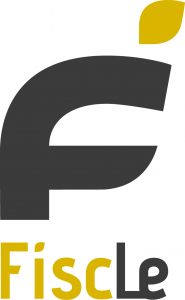Partial exemption on import duties and statistic rights on the import of capital assets
The Minister of Finance an Planning has set new conditions for partial exemption upon import of capital assets. These are included in the decision of the Minister of Finance and Planning dated October 6, 2023, La.F.no. 2502. This decision is valid from October 17, 2023 to December 31, 2023. The minister will not grant a refund of import duties already paid under an exemption decision. This means that the Minister will reject a request for a refund if the assets have already been imported.
The Government has decided that in connection with the increased costs associated with issuing the above-mentioned exemption decisions, it is necessary to determine compensation. The amount is set at SRD 2.000,- per application. This fee does not apply to requests submitted by social, charitable, religious and medical organizations. The fee must be paid to the Collector Import Duties and Excise Duties, who will then provide proof with which the exemption application can be submitted to the Directorate of Taxes together with the other required documents.
After approval by the Minister of Finance and Planning partial exemption on import duty of 75% is granted on the import of capital assets.
Partial exemption of statistic right is also granted under the Law on Statistic Rights up to an amount of SRD 100, -.
Capital Asset
To qualify for the partial exemption, the capital asset must be used by a company in the following sectors: forestry, industry, agriculture, horticulture, mining, animal husbandry, poultry, aquaculture, fisheries, wholesale, professional transport, industry, services and tourism, with the exception of the establishment and operation of casinos. The asset must have a direct connection to the business activities, in accordance with the registered activities with the Chamber of Commerce and Industry. The asset should be used in the context of the actual activities of a company. Assets are goods which can be depreciated.
The exemption is granted:
- if an asset has a value of at least US$ 7,500.- (seven thousand five hundred US Dollar). Value refers to the cost of the asset, plus insurance and freight costs.
- in the case of assets that in connection with the investment form a whole (initial investment), the joint value of the amount must be at least US$ 500,000.- (five hundred thousand US Dollar).
- in case the assets will be used in the agriculture sector, animal husbandry sector, fishing sector and in connection with the investment form a whole (initial investment), the joint value of the amount must be at least $ 250,000.- (two hundred and fifty thousand US Dollar).
- if the entrepreneur has no outstanding balances of the other taxes.
- if the entrepreneur has filed a request addressed to the Minister of Finance and Planning. This application must be submitted at least 3 weeks before the import of the assets. In this application, the following documents must be enclosed:
- a valid permit in case the company is required to hold a license;
- a statement of registration of the Inspector of Direct Taxes;
- a statement of no objection by the Tax Collector;
- an extract from the trade register of the Chamber of Commerce and Industry;
- the invoices or quotes of the supplier on which the value is stated;
- a correct and fully completed investment form;
- a business plan/ project plan in case of an initial investment as referred to in points b and c
- an itemized list containing the goods to be imported, the number of goods to be imported, individual values, total value, company stamp and signature of the company representative, in case of an initial investment;
- an agreement between the concession/permit holder and the interested party in the case of carrying out some activities in the forestry and mining sector
The following goods are excluded from the exemption:
- Passenger vehicles and buses, except in the case of commercial transport
- Trucks with a capacity of less than 1,500 (fifteen hundred) kg
- Vessels, except in the case of commercial use
- Parts of assets
- Building Materials
- Tools
- Goods intended for the furnishing and decoration of buildings and workshops, with the exception of hotels and catering establishments
- Clothing, footwear and other personal protective attributes
- Security equipment including firearms
Excluded from the initial investment are:
- Passenger vehicles, except in the case of commercial transport
- Trucks with a capacity of less than 1,500 (fifteen hundred) kg
- Vessels, except in the case of commercial use
- Clothing, footwear and other personal protective attributes
- Any component of an asset which has no minimum value of US$ 500.-
- Building materials such as cement, paint, nails, bolts, nuts and similar goods
- Furnishing goods intended for offices. This exclusion does not apply to companies whose main activity is the provision of certain services where office supplies are indispensable.
The asset for which partial exemption from import duties is granted should not be disposed of within 3 (three) years after import. Disposal is defined as:
- transfer of ownership of goods pursuant to a contract
- withdrawing an asset from the company
- changing the destination of an asset
- failure to use an asset within 3 (three) years after the beginning of the year in which the investment in the respective asset has occurred;
- use of the asset outside the territory of Suriname.
On disposal of an asset within a period of 3 (three) years, previously exemptions that have been granted will be charged the full import duties.
Investment law 2001
Based on the Investment law 2001, entrepreneurs who have an up to date bookkeeping and invest in capital equipment, have the possibility to request investment incentives.
However, it concerns only investments in the following sectors: agriculture, animal husbandry, fisheries, horticulture, aquaculture, mining, forestry, tourism except for the establishment and operations of casinos, industry, trade, industry, transport and professional services.
With the introduction of the Investment law, the body Investsur was introduced, whose main task is to assess the applications and to advise the Minister of Finance and Planning. Investsur has been installed in 2018 but is not operational yet. To date all applications have been processed and provided by the Minister of Finance and Planning.
Tax incentives:
Random depreciation
In the calculation of the yearly profit for the levying of the income tax, the amount of investment in an asset may be depreciated randomly, if the amount of this investment in Surinamese dollar is at least the equivalent of US$ 5.000 (five thousand US dollar).
A request for application of this incentive shall be submitted not later than three months after the date of the concerned investment. We advise to submit the request in an early stage, for example at the consideration of the purchase a business asset or at the beginning of a project.
Exemption from income tax (tax holiday)
The incentive applies for new companies. The maximum duration is 10 (ten) years. A request for application of this incentive shall be submitted not later than one year after the new company commenced.
Horizontal compensation of income tax
Profit and losses of a parent company and a subsidiary can be settled with each other if the following requirements are met:
- a request for relief is filed jointly by both companies;
- the periods during which the levying of income tax takes place, are equal for the two companies together;
- the profit of the subsidiary is achieved by a new company;
- in determining the profit for the two companies in a year, the same provisions of the Income Tax Act 1922 shall apply;
- each of the companies exerts a company in one of the sectors mentioned in the law.
A request for application of this incentive shall be submitted not later than one year after the new company has commenced.
The Non-tax incentives are:
- Permits transfers of funds. It concerns foreign exchange permits for the export of currencies for transfers of redemption and interest payments of foreign loans, profit transfer etc.
- Various permits. Business location, residence and employment permits and permits for the import and export of goods and services.




